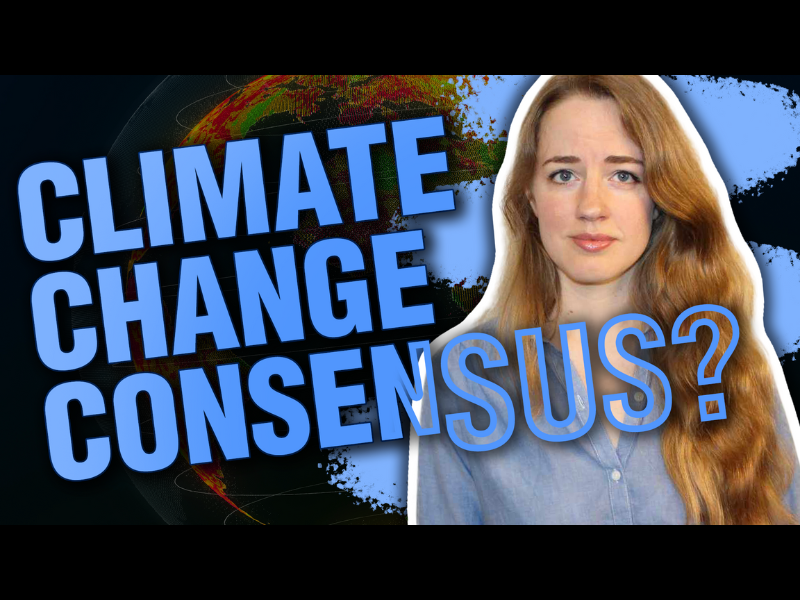Legislators in many states have blamed high-profile regional weather events on anthropogenic global warming and are proposing carbon taxes as a way to reduce carbon dioxide emissions and thereby—they hope—to mitigate severe weather.
Some lawmakers propose carbon taxes as a way to cut personal or corporate income taxes; others want to use them to increase revenues. Carbon tax proponents argue carbon dioxide is a “pollutant” and taxing emissions of it will reduce its harm. Heartland Institute President Joseph L. Bast, however, notes CO2 is a “measure of energy use,” which is “the single most important input into our economy,” and such a de facto tax on energy use would do significant harm to the economy.
In addition, according to a report from the Nongovernmental International Panel on Climate Change (NIPCC), an independent group of some 50 scientists from 15 countries, titled Climate Change Reconsidered II: Physical Science, the claim that global warming will lead to more extremes of climate and weather, including temperature, is theoretically unsound and contradicts the empirical evidence. The report states, “The main reason for this is that air temperature variability decreases as mean air temperature rises, on all time scales,” and such variability is the source of extreme weather events.
The idea that an individual state could affect the global climate is even more farfetched, and as manufacturers can easily move to other states, state carbon taxes are a particularly risky strategy for reducing these states’ globally insignificant emissions and generating revenue.
In testimony before the U.S. Senate Environment and Public Works Committee, former U.S. Department of Labor Chief Economist Diana Furchtgott-Roth argued that even if greenhouse gas emissions were affecting the climate, actions by the United States would not be detectable without similar changes by China and India, which are expanding coal consumption and increasing emissions.
State carbon taxes fail both as a climate policy and as an efficient tax policy. Even worse, history shows a cut in tax rates is always a temporary measure whereas the creation of a new tax is always permanent. State legislators should simplify their tax code and lower rates while treating energy consumption as an economic solution, not a problem.
The following documents offer additional information on carbon taxes.
Ten Principles of Energy Policy
http://heartland.org/policy-documents/ten-principles-energy-policy
Heartland Institute President Joseph Bast outlines the ten most important principles for policymakers confronting energy issues, providing guidance to deal with ongoing changes in markets, technology, and policies adopted in other states, supported by a thorough bibliography
Dissecting the Carbon Tax
http://www.american.com/archive/2012/july/dissecting-the-carbon-tax
Kenneth Greene, a resident scholar at the American Enterprise Institute, recaps how he was first deceived by the supposed economic benefits of carbon taxes and how his views have evolved, given the dubious track record of other eco-taxes being raided for general spending.
Kansas Legislature Was Wise to Reject Carbon Tax
http://news.heartland.org/newspaper-article/2008/05/01/kansas-legislature-was-wise-reject-carbon-tax-0
Writing in the Heartlander, Cato Institute Senior Fellow Patrick Michaels discusses the defeat of a 2008 Kansas state bill to impose a carbon tax. If the bill’s costly provisions were applied to every country in the world that signed the 1997 Kyoto Protocol, it would prevent just 0.27 º F of warming per century, a figure too small to even measure, Michaels reports.
A Primer on the Economics of Carbon Taxes and Cap-and-Trade Systems
http://news.heartland.org/newspaper-article/2007/12/01/primer-economics-carbon-taxes-and-cap-and-trade-systems
Retired economist and Heartland Institute Board Member Jim Johnston analyzes the pros and cons of the two most prominent government schemes to combat carbon dioxide emissions—cap-and-trade programs and carbon taxes.
Heartland Institute Announces Its Opposition to Carbon Taxes
http://heartland.org/press-releases/2012/07/13/heartland-institute-announces-its-opposition-carbon-taxes
Heartland Institute experts react to an apparently bipartisan campaign to promote a carbon tax swap during the 2012 lame duck session of Congress, citing the poor track record of tax swaps, unaddressed spending problems, and skepticism toward claims of an imminent manmade climate change catastrophe.
Global Carbon Dioxide Emissions Increase by 1.0 Gt in 2011 to Record High
http://iea.org/newsroomandevents/news/2012/may/name,27216,en.html
The International Energy Agency reports key findings from its signature report, World Energy Outlook 2011, including the United States’ world-leading reduction in carbon emissions failing to prevent a record high in global carbon emissions from fossil-fuel combustion.
Research & Commentary: Extreme Weather
http://heartland.org/policy-documents/research-commentary-extreme-weather
This chapter from the Nongovernmental International Panel on Climate Change (NIPCC), an independent group of some 50 scientists from 15 countries, summarizes the large body of research into historical trends in extreme weather events and examines how these events interrelate with other weather and climate variables. The evidence overwhelmingly indicates variations in extreme weather are natural, not caused by human carbon dioxide emissions.
Massachusetts Carbon Tax Proposals Just Won’t Cut It
http://taxfoundation.org/blog/massachusetts-carbon-tax-proposals-just-wont-cut-it
Tax Foundation Economist Lyman Stone examines Massachusetts’ carbon tax proposals and finds they would further distort the state’s tax code while proving useless as an environmental policy because of the mobility of carbon-intensive industries such as manufacturing.
For further information on this subject, visit the Environment & Climate News Web site at http://news.heartland.org/energy-and-environment, The Heartland Institute’s Web site at http://heartland.org, and PolicyBot, Heartland’s free online research database, at www.policybot.org.
Nothing in this message is intended to influence the passage of legislation, and it does not necessarily represent the views of The Heartland Institute. If you have any questions about this issue or the Heartland Web site, contact Heartland Institute Policy Analyst Taylor Smith at [email protected] or 312/377-4000.



